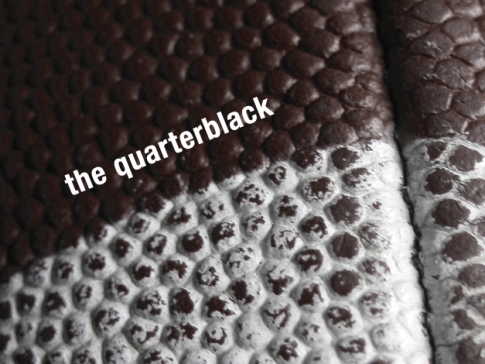The Quarterblack
American football is arguably one of the most strategic sports on the planet. Like a game of chess played with human pieces, football is a brutal ballet where one perfectly timed spin move could be the difference between a glorious touchdown or a career ending tackle.
To a greater extent than other sports, each position is suited to a remarkably specific body type, enabling players to perform incredibly athletic feats. Tall receivers effortlessly snatch a ball out of thin air then gracefully moon walk into the end zone; despite being the size of Olympic body builders, linebackers possess the agility and speed to strip you of the ball and your manhood; and punters may look like anorexic school girls but they can kick a football really far.
Pacioretty vs. Chara: The Ambiguous Case
In the evaluation of Boston Bruins' Zdeno Chara’s infamous hit on Montreal Canadiens' Max Pacioretty—a hit that had many onlookers wondering whether Pacioretty was dead or alive—motive is important. In a physical sport like hockey, where rivalries take on a life of their own, precedents must be considered when weighing the intent of any hit involving the head. Just as Matt Cooke’s history as a cheap shot artist came into play when the NHL’s justice department dropped a 10-game suspension on him (plus the first round of the playoffs), Chara’s history should be the starting point when considering guilt and innocence. If this were a criminal case—and the Montreal Police department is investigating whether charges should be laid—it would be incumbent upon all parties to consider whether Chara had a clear motive.
No Sleep 'Til Brooklyn
A new NBA season has begun and long gone are offseason storylines of Lakers adding all-stars Steve Nash and Dwight Howard, the excitement of Olympic basketball and a set of wacky rule changes that involve fining players for flopping. With these in the rear view mirror, the most exciting story of the early season is the Brooklyn Nets.
The franchise claims to have changed homes due to a waning fan base but it would be foolish to overlook the allure of the Big Apple. Sports-wise, New York is a behemoth, boasting eight franchises over the four American major leagues. Yet, since the departure of the Brooklyn Dodgers back in 1957, professional sports in Brooklyn have been MIA. In this way, the arrival of the Nets is a kind of redemption.
Still Fighting: Georges Laraque on Haiti & Drugs in the NHL
An interview with Geoffrey Lansdell
Georges Laraque played 695 games over 13 seasons as an enforcer in the NHL. During that time, he racked up 1,126 penalty minutes and went to the Stanley Cup finals with Edmonton in 2006 and Pittsburgh in 2008. At 6’3’’ and 260 pounds, Laraque was an imposing figure on the ice and is widely regarded as one of the greatest heavyweight fighters the game has ever seen.
Despite his fighting pedigree, Laraque, a Montreal native of Haitian descent, was a gentleman both on and off the ice. His contagious enthusiasm made him a fan favourite everywhere he played. But perhaps most significantly, Laraque has used his hockey as a vehicle for something greater than the game.
Icarus' Boots: The Cult & Collapse of Diego Maradona
Maradona was an artist who inspired the mystical. Like Zidane after him, Maradona fuelled myths in the zealous minds of his followers and the collective psyche of his country.
But he was too good for his own good. A soccer genius, Diego Armando Maradona rose from the slums of Buenos Aires to become an icon and an idol in Argentina and Italy. Author of the infamous Hand of God goal that he punched in against England during the 1986 World Cup, many of Maradona’s goals were the result of his trademark breathtaking end-to-end rushes. But Maradona was given to excess. Derailed multiple times for cocaine violations, and banned from the 1994 World Cup due to an ephedrine-tainted urine sample, Maradona fell off the world stage in tragic fashion.
Muhammad Ali: The Pulpit of Fame
Muhammad Ali was perhaps the first person to achieve mainstream fame in the early days of the broadcasting age.
And unlike many of today’s stars who bask in the spotlight like they’re sun tanning – Paris Hilton and Terrell Owens come to mind – Ali was a celebrity worth celebrating. Politically astute, poetically inclined, and spiritually enlightened, Ali used his pulpit of fame to scintillating effect.
"I’m so fast,” he once quipped claimed with a nudge and a wink, “that last night I turned off the light switch in my hotel room and was in bed before the room was dark.” But Ali’s cockiness was more of a game than shallow self-promotion.
